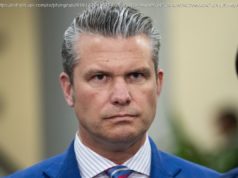Delegates swooned as a band belted out «Hotel California» on the sidelines of a Saudi investment forum, with organisers projecting it as business as usual despite mass cancellations from global CEOs over critic Jamal Khashoggi’s murder.
Delegates swooned as a band belted out «Hotel California» on the sidelines of a Saudi investment forum, with organisers projecting it as business as usual despite mass cancellations from global CEOs over critic Jamal Khashoggi’s murder.
Multi-billion dollar «mega deals» were declared and sumptuous buffet spreads laid out at the Future Investment Initiative in Riyadh, while delegates rushed to take selfies with Crown Prince Mohammed bin Salman who received a standing ovation.
But the flagship three-day conference that seeks to project the oil-rich desert kingdom as a lucrative business destination appeared to largely be a subdued affair after the Khashoggi murder pushed the world’s top oil exporter into one of its worst crises.
It especially paled in comparison to last year’s inaugural FII.
In 2017, Prince Mohammed dazzled investors with plans for the $500-billion (440-billion-euro) mega city NEOM billed as a regional Silicon Valley, and a talking robot named Sophia was declared a Saudi citizen.
The forum was billed as an economic coming-out party after the prince, a self-styled reformer, won global plaudits for ending a decades-long ban on women drivers and his ambitious plans to modernise the ultraconservative kingdom.
Saudi Crown Prince Mohammed bin Salman, seen here posing for a selfie during a brief appearance at the opening of a flagship investment forum in Riyadh, is scheduled on day two to give his first speech since the murder of critic Jamal Khashoggi
Bandar AL-JALOUD, Saudi Royal Palace/AFP
But the star attractions of last year were missing as the event opened on Tuesday with British billionaire Richard Branson, SoftBank chief Masayoshi Son and Siemens chief executive Joe Kaeser among dozens of global business titans who shunned the event.
The brightly lit booths of Western media outlets were gone, with star television anchors such as Fox News’s Maria Bartiromo — who moderated a panel with Prince Mohammed last year — notably absent.
— Shifting agenda —
Organisers frequently changed the agenda of the event in a sign speakers were dropping out.
They scrambled on Wednesday to replace the political no-shows with figures from regional allies, with Lebanese prime minister-designate Saad Hariri and the president of Senegal among the headliners.
A Saudi man walks past a sign at the start of a three-day conference called Future Investment Initiative (FII) in the Saudi capital Riyadh on October 23,2018
FAYEZ NURELDINE, AFP
Saudi officials were still eager to project the kingdom’s economic ambitions, with a Lucid electric car displayed outside the lunch venue and each delegate receiving a bulky hardcover book titled «A blueprint for the 22nd century».
At a poolside gala dinner reception on Tuesday, Chico Bouchikhi, one of the founders of the Gipsy Kings, regaled participants with hit songs such as «Hotel California».
The conference was largely filled with delegates from Arab nations, many from Saudi Arabia itself, and most of the Westerners present sought to maintain a low profile and some appeared unwilling to even share their business cards with journalists.
But Saudi officials heaped praise on Western business figures such as the CEO of French energy giant Total, Patrick Pouyanne, for standing by Riyadh in this difficult period.
— PR crisis —
Khashoggi’s murder has plunged the kingdom into what observers call an acute public relations crisis.
The companies doing business with Saudi Arabia would have to «find a balance between maintaining a good PR image and their business considerations», said Tony Chan, president of Saudi Arabia’s King Abdullah University of Science and Technology, who attended the forum.
French-Moroccan businessman Richard Attias, Jordan’s King Abdullah II, Saudi billionaire Prince Al-Walid bin Talal, and Saudi Crown Prince Mohammed bin Salman check an installation during the Future Investment Initiative
Bandar AL-JALOUD, Saudi Royal Palace/AFP
As delegates walked into the vast conference venue at the Ritz-Carlton hotel, bedecked with frescoed ceilings and glittering chandeliers, many feverishly checked their phones for new developments about Khashoggi’s murder.
Prince Mohammed, addressing the conference in his first public comments since Khashoggi’s killing on October 2, denounced the «painful» murder and vowed that «justice will prevail».
«The incident was very painful for all Saudis, it’s a repulsive incident and no one can justify it,» he said.
Saudi officials at FII sought to defuse what they acknowledged as a «crisis».
Prominent Saudi businesswoman Lubna Olayan described the murder as a terrible act «alien to our culture and DNA».
«For a long time I introduced my country to outsiders by saying: ‘I come from a country that doesn’t allow women to drive’,» said another Saudi businesswoman.
«I thought we were moving forward, but this (crisis) has taken us far behind.»






